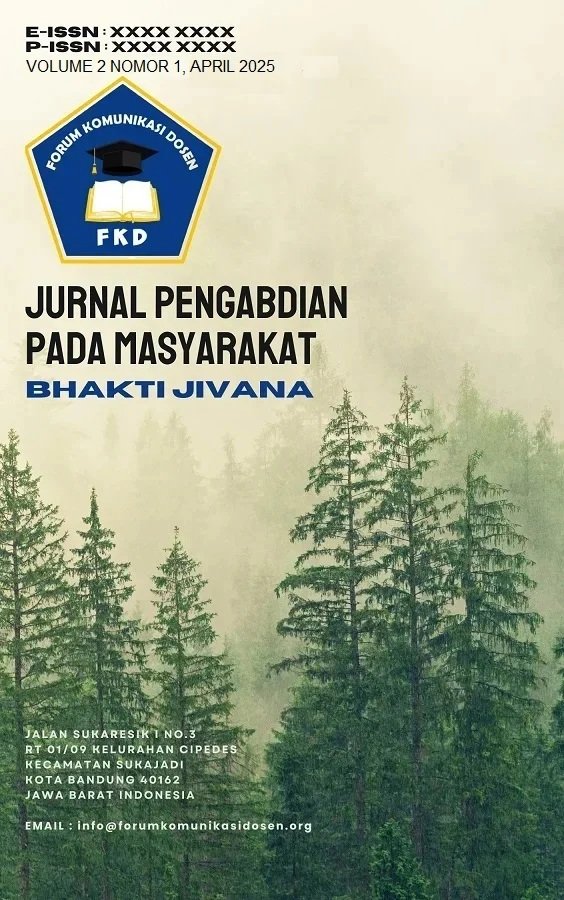EDUKASI MASYARAKAT MENGENAI BAHAYA DAN IDENTIFIKASI KONTEN PALSU
DOI:
https://doi.org/10.65055/bhaktijivana.v2i1.33Keywords:
digital literacy, hoax, community education, false content, community serviceAbstract
AbstractThe widespread dissemination of false content (hoaxes) has become a significant challenge in today’s digital era. Limited digital literacy makes some individuals easily influenced and more likely to share unverified information. To address this issue, a Community Service Program (PKM) was conducted with the aim of educating residents about the dangers of digital hoaxes and how to identify them. The activity was held in a village in Bandung Regency, involving 45 participants, the majority of whom were members of the local youth organization (Karang Taruna). The method included obtaining permission and coordination with village authorities, delivering interactive educational sessions, and conducting group discussions and fact-checking simulations. The session began with an ice-breaking activity to foster engagement, followed by the presentation of materials and participatory discussion. The results showed that many participants were accustomed to receiving and forwarding chain messages without verification and expressed concern about suspicious links that might compromise personal data. A notable case discussed was the viral spread of a false robbery incident in Cangkorah Village, which was later revealed to be fabricated by the individual involved due to online loan issues. This activity received positive feedback and raised participants’ awareness of the need to be more critical of digital information. It is recommended that those who attended share their knowledge with others, and that the broader community exercise greater caution and patience when handling information to avoid unnecessary panic or social tension.

Downloads
Published
Issue
Section
License
Copyright (c) 2025 JURNAL PENGABDIAN PADA MASYARAKAT (BHAKTI JIVANA)

This work is licensed under a Creative Commons Attribution 4.0 International License.

